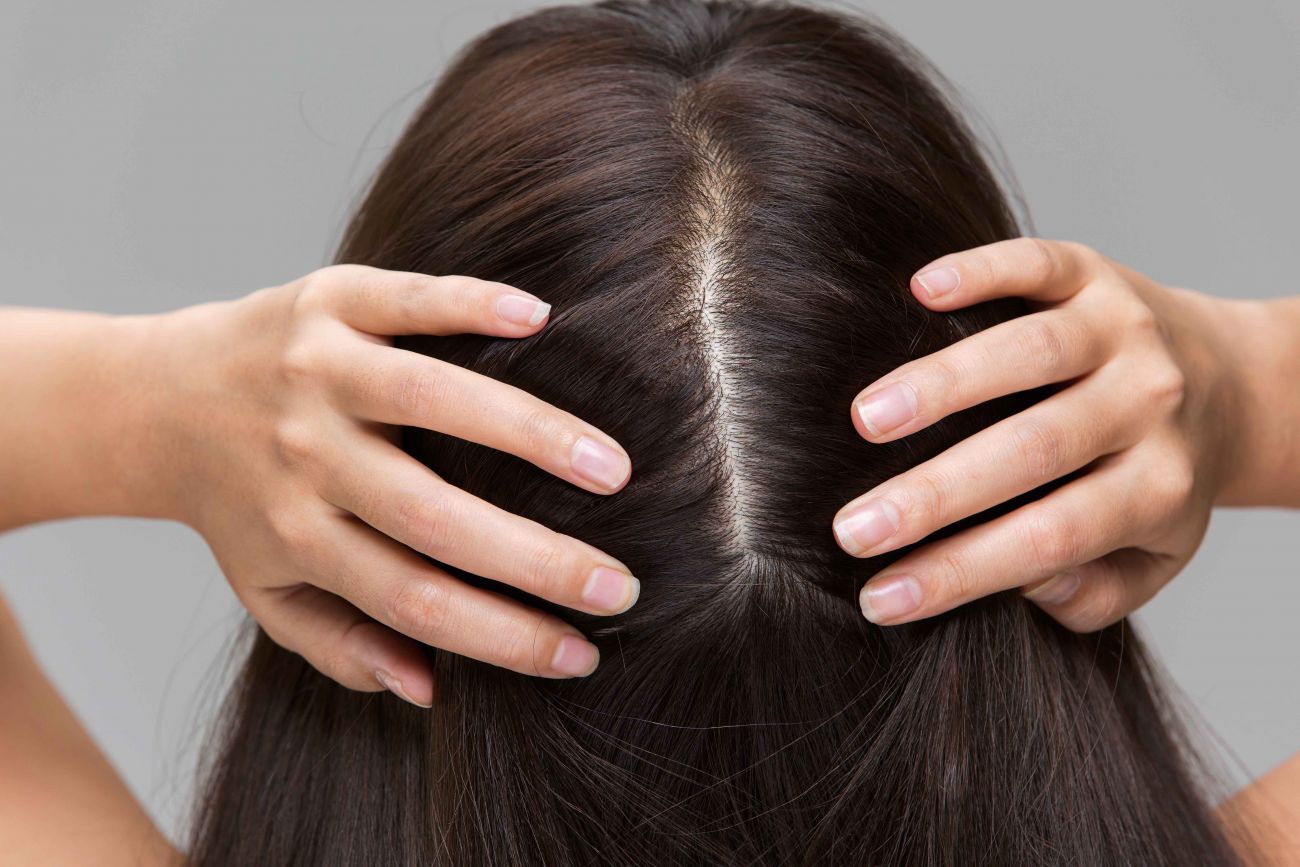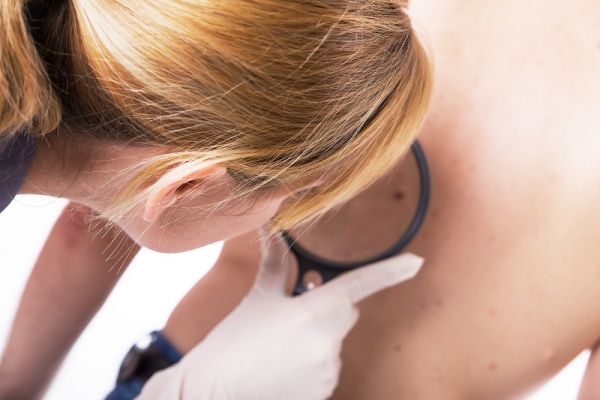Yes, the same skin cancers that occur on other areas of the skin can occur on the scalp.
These include the three most common skin cancers:
- Basal cell carcinoma, the most common skin cancer as well as the most common of all cancers. This skin cancer is almost always related to accumulated sun damage.
- Squamous cell carcinoma, the second most common skin cancer, which very frequently is related to sun damage.
- Melanoma, the most serious of the skin cancers, which is related to many factors, including sun damage and tanning beds.
The hair on the head does offer some protection from the sun but not complete protection.
Signs of skin cancer on the scalp are the same as signs of all skin cancers, i.e., a sore that does not heal or a new growth or a mole that is irregular, has changed or has just appeared. The biggest challenges that scalp skin cancers present involve detection and prevention.
Even people who regularly check their skin as recommended often do not think of including their scalp. It is important to have someone else check the scalp thoroughly on a regular basis. Many hairdressers are trained to look for skin cancer signs on their clients’ scalps and are often are the ones to notice a suspicious lesion.
Avoiding exposure to the sun is key to skin cancer prevention. When hair thins, the sun has a clearer path to the scalp where there is no shade. Thinning hair for men often begins with a receding hairline or loss of hair on the crown of the scalp. Women also can experience gradual thinning of the hair, primarily in the center of the scalp. This is why wearing a hat is so important for protecting your scalp, face and neck from the sun.
Sunscreen also is vital to sun protection and skin cancer prevention. Apply sunscreen thoroughly to all exposed areas of your skin, and don’t forget your face and the back of your neck. Apply it also to the scalp as much as possible. Your sunscreen should have an SPF of at least 30. It will work best if you apply it a half-hour before going outside.
Remember to reapply sunscreen frequently, at least every two hours. If you go swimming or perspire from an outside activity, choose a water-resistant sunscreen and reapply it every one to one-and-a-half hours. Remember to abide by the other sun protection recommendations, including staying in the shade and avoiding midday hours for outdoor activities.
Diagnosing skin cancer of the scalp is done the same way as for skin cancers on other body surfaces: by a biopsy. The treatment is the same as well, most commonly by surgery. The biggest challenge, as noted above, is that detection of scalp cancers can be delayed because of hair covering. Thus, the cancer once detected may be more extensive, so the surgery also may be more extensive. Melanoma and some squamous cell carcinomas can spread to lymph nodes and other organs if not detected and diagnosed early. At Roswell Park, we have a large team of dermatology providers including physicians and advanced practice professionals who offer complete skin exams, especially for people with a history of sun damage, skin cancer or for those who have suspicious skin lesions.



